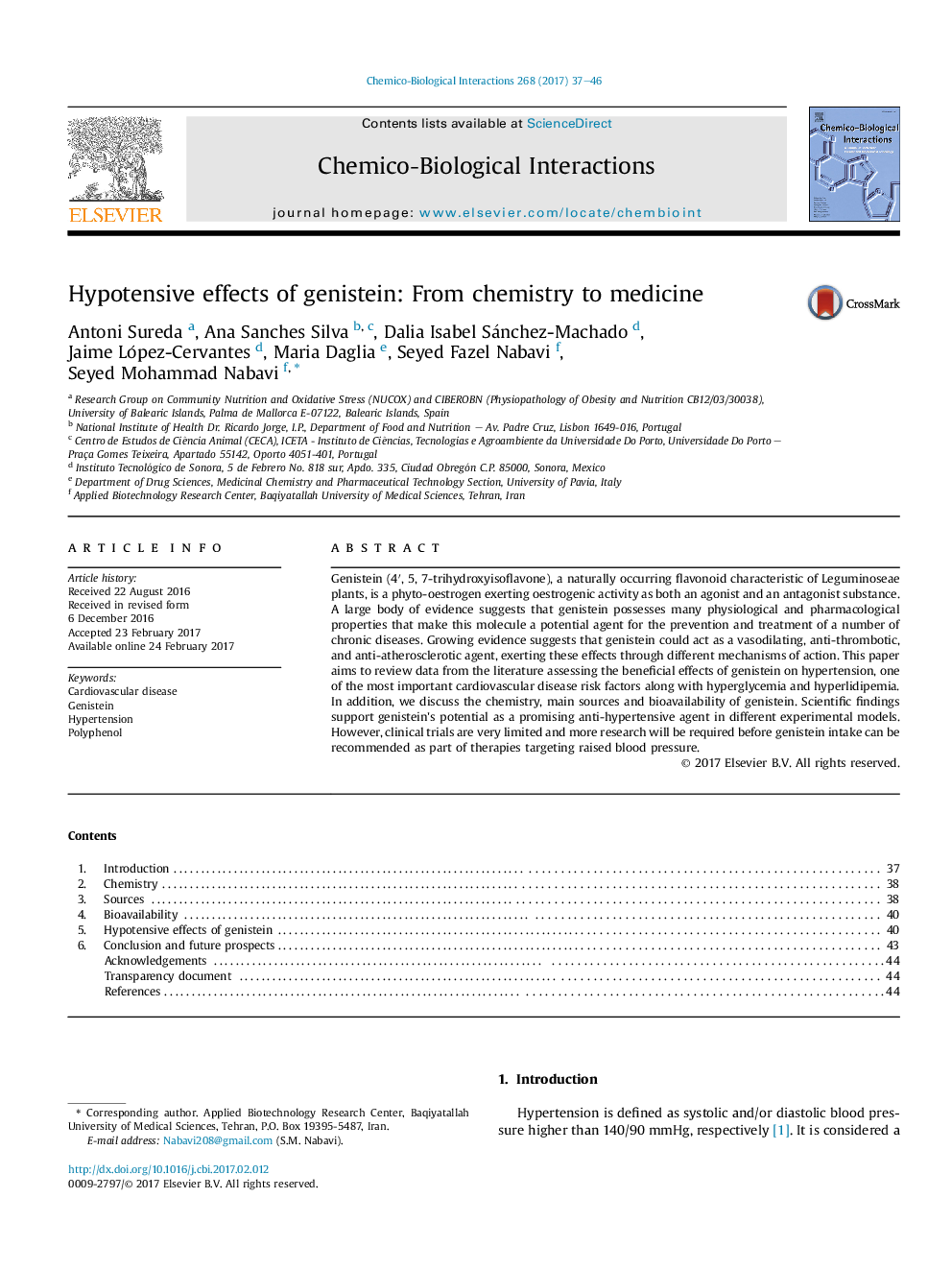| Article ID | Journal | Published Year | Pages | File Type |
|---|---|---|---|---|
| 5559597 | Chemico-Biological Interactions | 2017 | 10 Pages |
Genistein (4â², 5, 7-trihydroxyisoflavone), a naturally occurring flavonoid characteristic of Leguminoseae plants, is a phyto-oestrogen exerting oestrogenic activity as both an agonist and an antagonist substance. A large body of evidence suggests that genistein possesses many physiological and pharmacological properties that make this molecule a potential agent for the prevention and treatment of a number of chronic diseases. Growing evidence suggests that genistein could act as a vasodilating, anti-thrombotic, and anti-atherosclerotic agent, exerting these effects through different mechanisms of action. This paper aims to review data from the literature assessing the beneficial effects of genistein on hypertension, one of the most important cardiovascular disease risk factors along with hyperglycemia and hyperlidipemia. In addition, we discuss the chemistry, main sources and bioavailability of genistein. Scientific findings support genistein's potential as a promising anti-hypertensive agent in different experimental models. However, clinical trials are very limited and more research will be required before genistein intake can be recommended as part of therapies targeting raised blood pressure.
